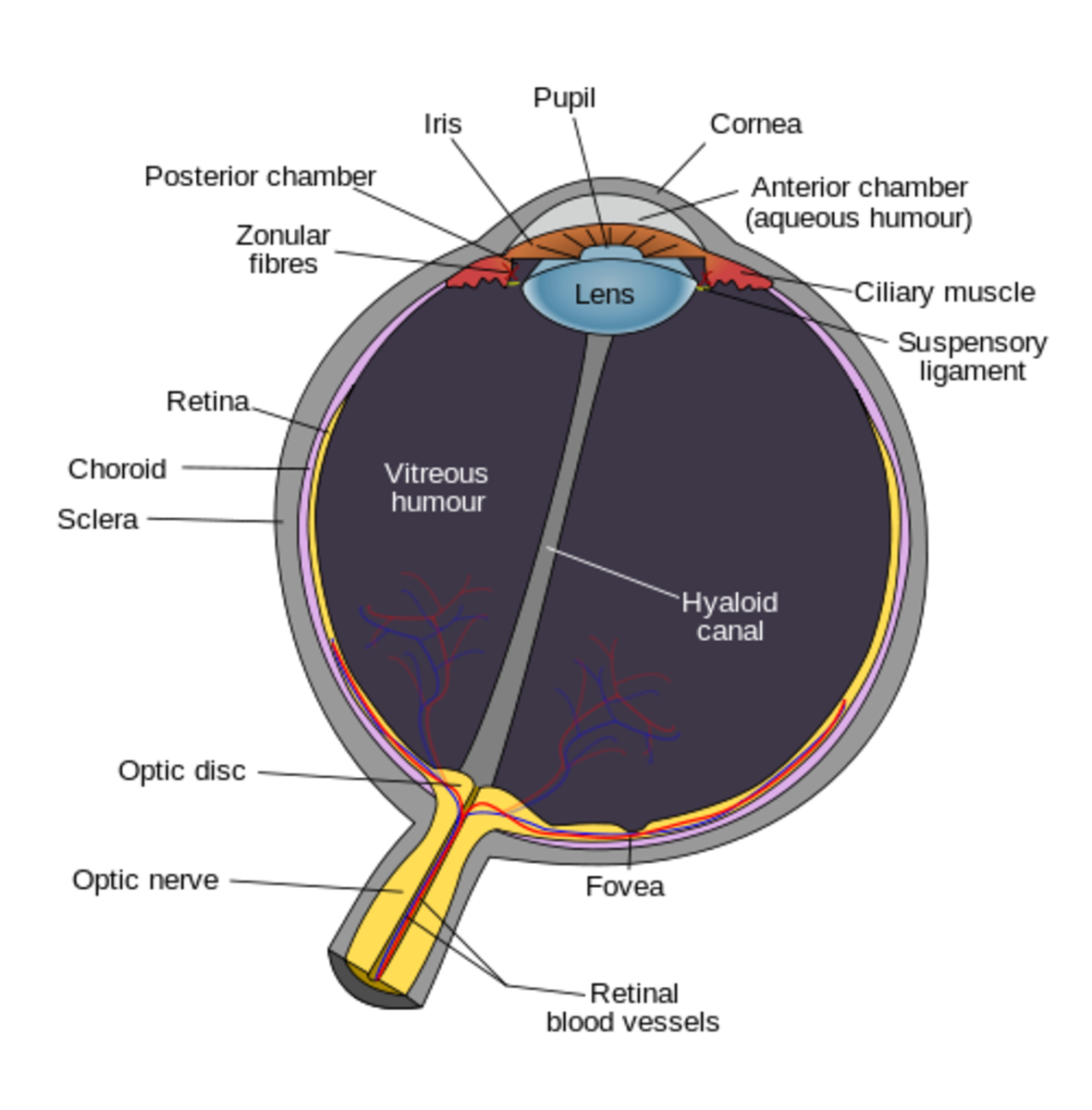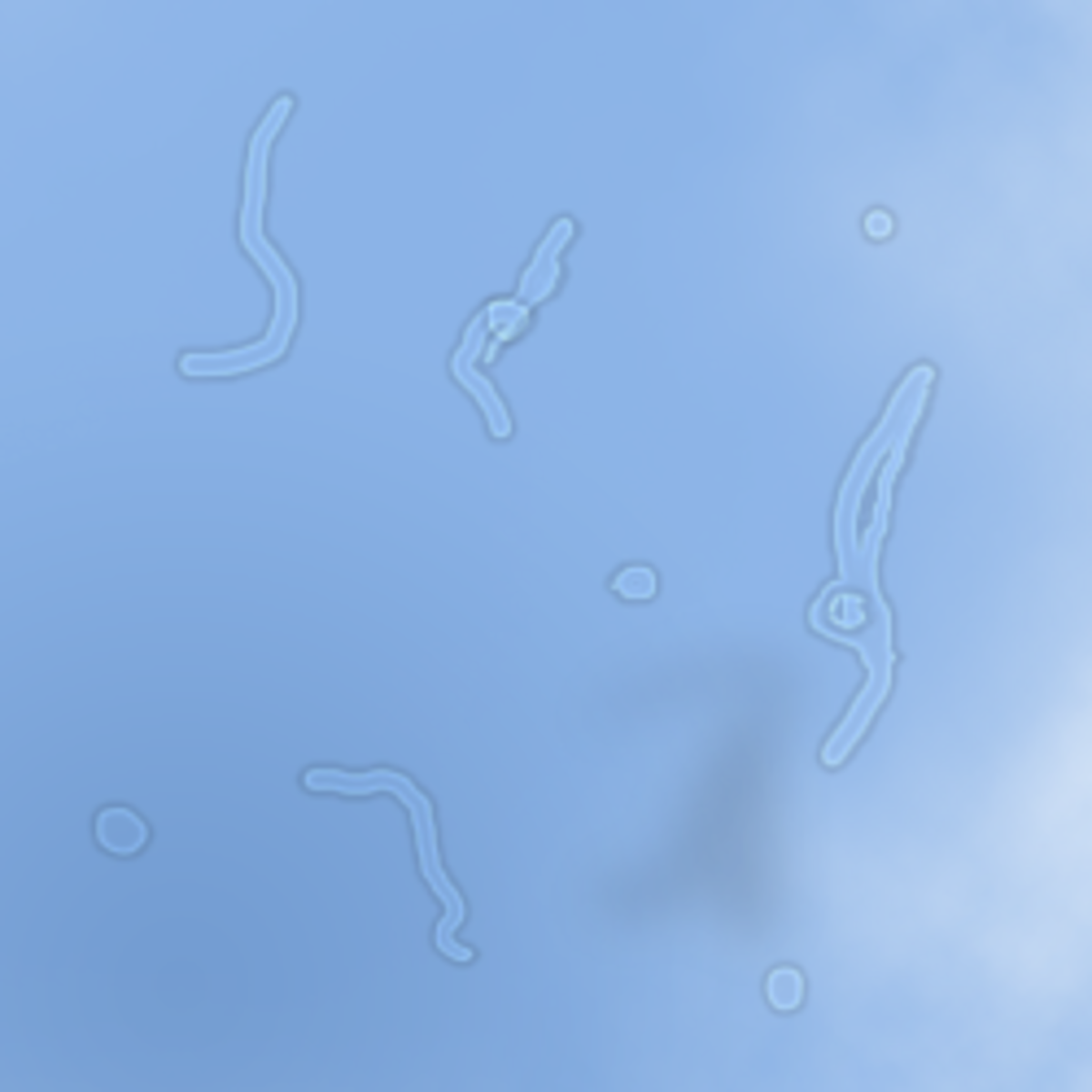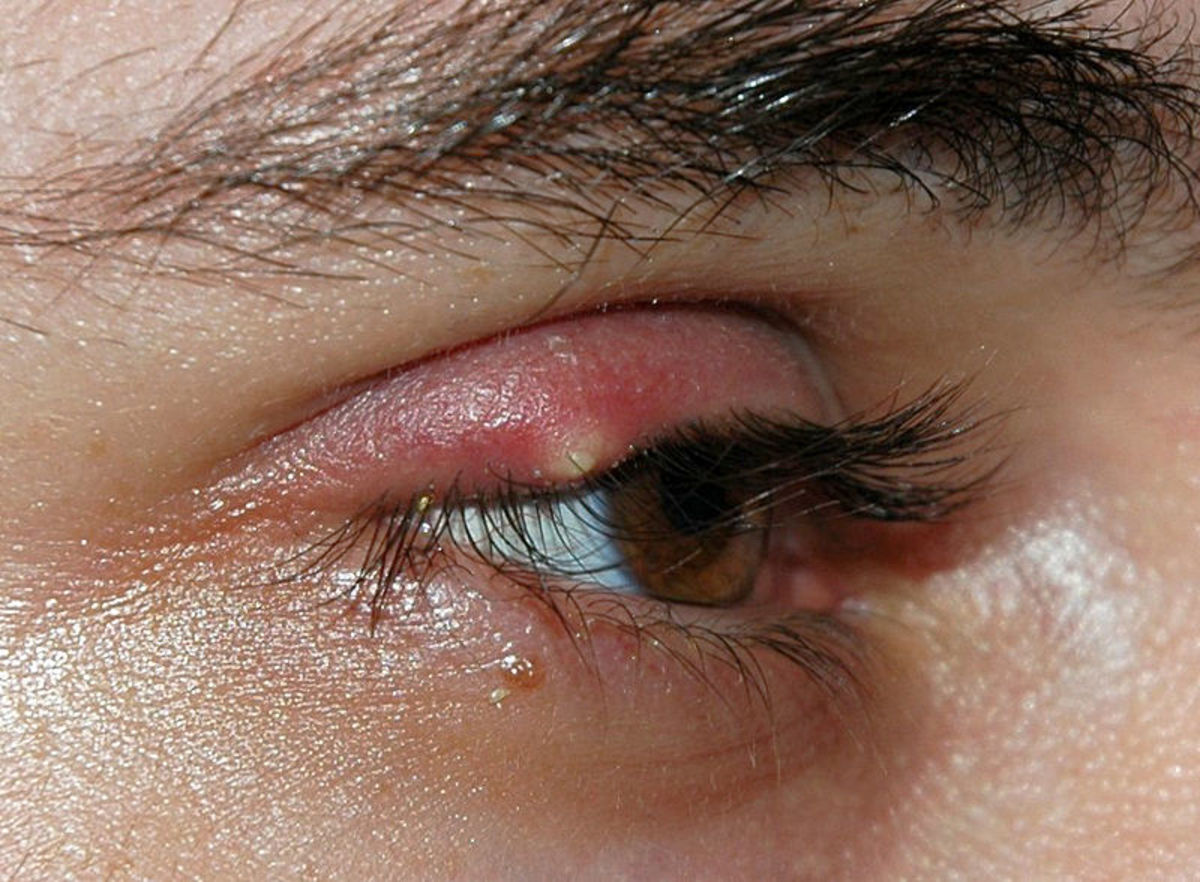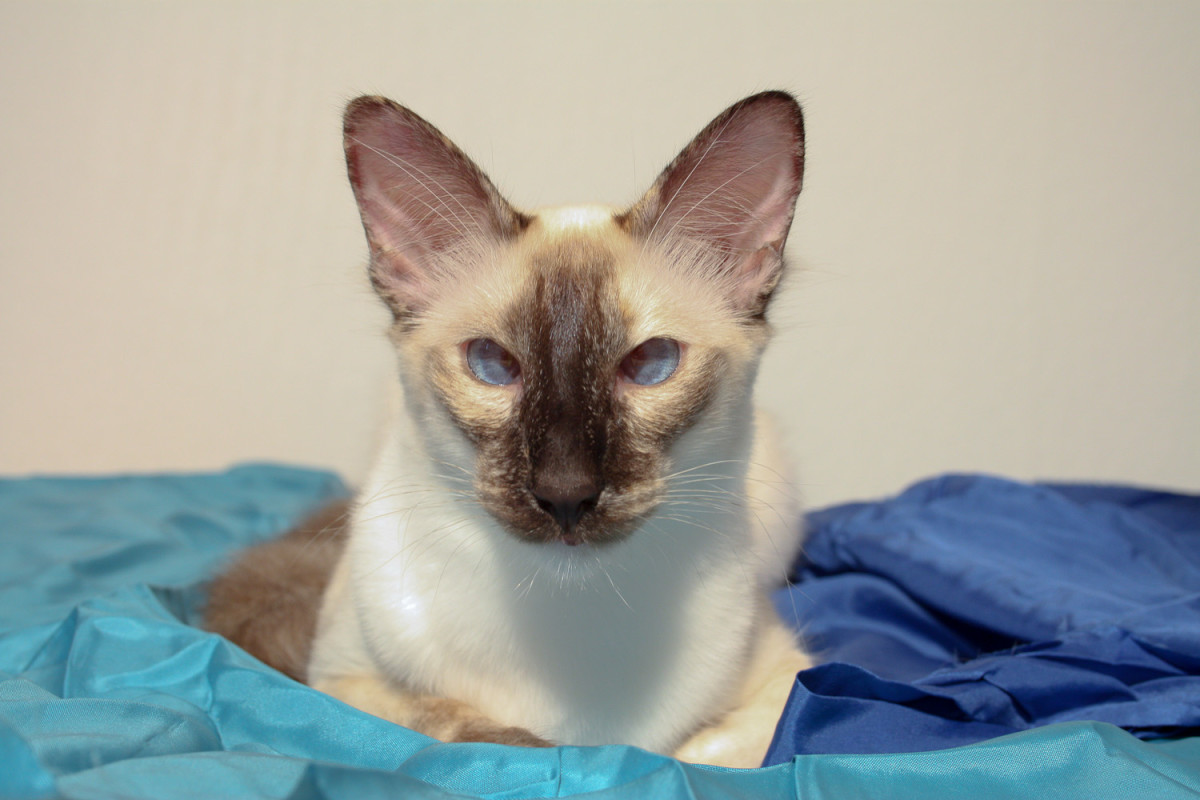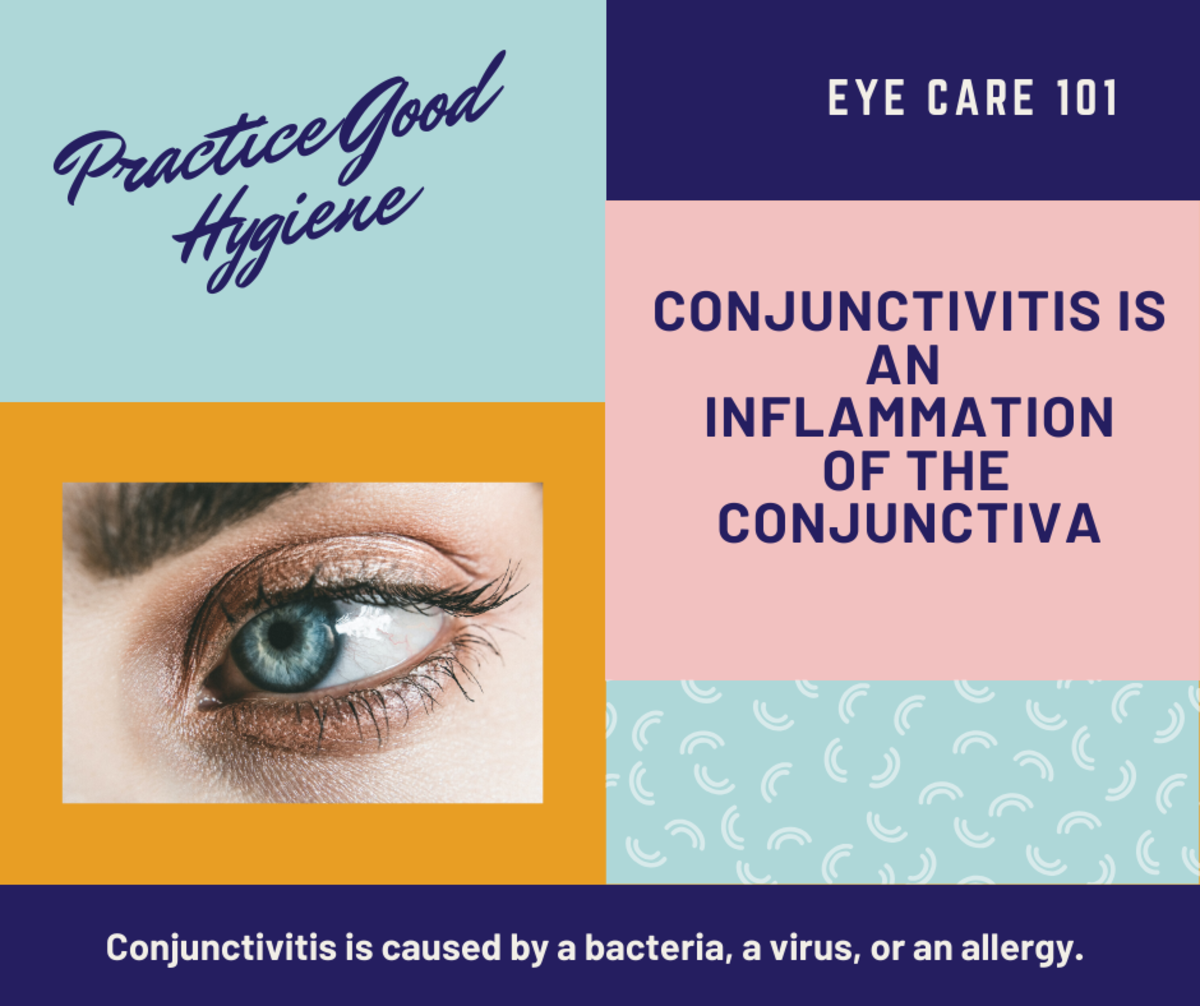What Are Floaters ?
The Human Eye and its components
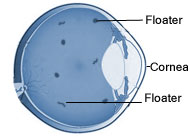
On occasion, while sitting and watching TV, or when lying in bed, have you ever noticed tiny specks or spots floating or moving across your eyes field of view? And no...I am not referring to people here, that are high or on drugs. You do not necessarily have to be on drugs or some other kind of substance to notice these tiny specks or dots.
These floating flies as they are sometimes called, are exactly just what they appear to be in your eyes, floaters. Floaters or (Muscae Volitantes) for latin, are not painful and in many cases are totally harmless . The medical name for floaters, is myodesopsia.
Individuals who have difficulty in visualizing objects close up, or in other words are (nearsighted), are often more apt to see floaters more so than someone who does not wear lenses to correct their nearsightedness. If you move your eyes quickly up and down or head from side to side, they are more noticeable in front of your eyes, particularly against a light background (ie.) white wall or a ceiling.
These floaters or flying flies if you will, are normally transparent and found within the vitreous humour of the eye. Rubbing your eyes will not make them go away. Also interesting to note, is that because of a process called neural adaptation; if floaters did not move they would be invisible. So because they do move in the vitreous humor of the eye, in essence we see them, because they do not remain perfectly fixed within the eye.
If you go outside on a bright day, they appear to be more noticeable. The reason being is that the floaters or specks are able to capture and reflect light in ways that temporarily blur the vision, until they move into another part or area of the fluid of the eyeball.
After time, people whom experience floater's learn to ignore or forget about them. If you're staring at the boob tube or ceiling and move your eyes or head, most likely you will notice them. Floaters have been reported by individuals as young as nine years old, but more common between the ages of 40 to 70 years of age.
Some main causes for floaters can be contributed to a regression of the hyaloid artery for one. In women during their third trimester of pregnancy, the disintegration of the hyaloid artery can at times leave behind cell matter.
The hyaloid artery is an artery that during the fetal stage development, runs through the vitreous humour. Leaky blood vessels in the eye called retinal tears, are sometimes visualized by patients as floaters. However the cause or appearance of these floaters Is do to retinal tears within the eye matrix. On the other hand still some may experience decreased vision due to the build-up of leukocytes or white-blood cells in the vitreous fluid of the eye.
Toxoplasmosis is the term used for this and it results from a parasitic infection in warm-blooded animals, including humans. People who have this problem, usually experience several floaters, rather than a few at a time in their field of vision.
There are a few other causes that contribute to floaters as well, but Vitreous Syneresis probably tops the list. As the vitreous humour in the eye shrinks...there is a gel like substance, made up of about ninety-nine percent water and the remaining one percent, being made up of solid elements. Hyaluronic acid and collagen makes up the solid portion.
This mix or network later mixes with the remaining molecules of water. As a result of Depolymeriztion( Chemical Process of mixing a Polymer and Monomer).During this process, the collagen as previously mentioned is broken down into small fibrils or fibers. Floaters caused by this process are named single line type floaters that a patient mainly sees. They tend to be fewer in number as well.
People who are usually always fatigued and suffer from certain types of anemia's, particularly sickle-cell anemia for one; tend to also suffer from floaters. And one may conclude that this is logical because if you are constantly tired, there is a good chance that you are also anemic.
With anemia as I mentioned comes a chronic feeling of fatigue; resulting in people with this condition seeing more floaters than folks who are not anemic. If you suffer from chronic fatigue syndrome or have hypertension you may also have or are experiencing floaters.
Individuals who suffer from diabetes may also have a condition known as Diabetic Retinopathy. With Diabetic Retinopathy, the sugar levels in your blood remain higher than normal, and for a longer period of time. This can result in damage to the blood capillaries that nourish the eyeball.
In turn this can lead to eventual blindness if not corrected before damage occurs. People who suffer from Diabetes may have floaters in the earlier stages of their disease. The most common causes and diseases associated with floaters; besides the aforementioned and being over 40 years of age and can be from some of the following:
- tuberculosis
- Inflamation
- Syphillis
- Anemia
- Leukemia
- Lymphoma
- glaucoma
- prior cataract surgery
- -(inflammatory Diseases affecting different areas of the body)
- tumors in the eye
Perhaps you are seeing floaters in your field of vision at this very moment. Please don't be alarmed and start calling your Physician, telling him or her that you think the floaters that you are currently seeing, may be related to one of the above mentioned conditions and/or causes.
Floaters for the most part are totally harmless and the brain does tune them out after time. Essentially there is really nothing that you can do to correct them or make them disappear, if you are or have noticed them from time to time. Surgery, even by most Ophthalmologists is not recommended and can cause problems in the future.
A common type of surgery or procedure utilized in treating more severe cases is called a Vitrectomy. The problem with a Virectomy is that it not only can cost over $10,000.00 but also can be risky to the patient. It is reported that only about 60% of patients receive relief from their floaters with this type of surgery. While on the other hand 50% develop some sort of complications.
Nothing is never 100% effective in treating a given disease condition. An example of this that I like to use is, lasik surgery to correct myopia in patients who are nearsighted. Even though these individuals who have had this procedure, are now able to see without the aid of the glasses in which they previously had worn.
This is not always the case, and in many instances your eye doctor may tell their patients that they will still need to wear a pair of non-prescription reading glasses to still aid with your reading.
Another less invasive procedure used in eliminating floater problems is by Laser Vitreolysis. This type of laser surgery is not often performed by too many specialists today, and is performed on an outpatient basis. A (YAG)-Yttrium aluminium garnet ophthalmic laser is used to focus on the floaters within the vitreous liquid of the eye.
Afterwards a short series of small bursts cuts the collagen strands of the floaters. This type of surgery usually has fewer side-effects than a Vitrectomy but as mentioned is rarely implemented anymore by specialists in this area of Ophthalmology.
Magnesium rich foods...beans, nuts and vegetables to name a few have shown to be a natural way to supply your body with this essential mineral that many of us tend to forget about. Besides it's a natural way in that it has been shown to reduce or eliminate bothersome floaters.
Just to note here-magnesium may also be useful in patients with palpitations, fibromyalgia, diabetes, high blood pressure and anxiety problems. It does justify seeing your eye care professional however, if you are, or suddenly develop any of the symptoms mentioned below:
- A sudden increase in the number of floaters that you see, especially if they are accompanied by flashes of light.
- Double vision
- loss of Peripheral vision
- Or Blurred vision
I myself personally wear reading glasses, when I have to type or do some other work which involves reading or writing. I have also been wearing contact lenses for years and do suffer from myopia. From time to time I have experienced floaters myself for at least fifteen years.
I do not suffer from any other underlying conditions that I am aware of and am in good health. So given my example, and if you can relate to me in this way; than take my advice...it is not worth risking your eyes just to eliminate some bothersome eye floaters from time to time.
Even if from a monetary standpoint, you can afford the procedures mentioned to correct it. Just try to keep your brain trained on more relevant topics when you get bored, and feed it with good foods rich in magnesium an other minerals.
Remember you only get one set of eyes and your vision should be one of the more precious gifts that you possess. It would certainly be a foolish, not to mention a terrible waste; for you to risk losing it all with corrective surgery that in addition could possibly render you blind forever.


